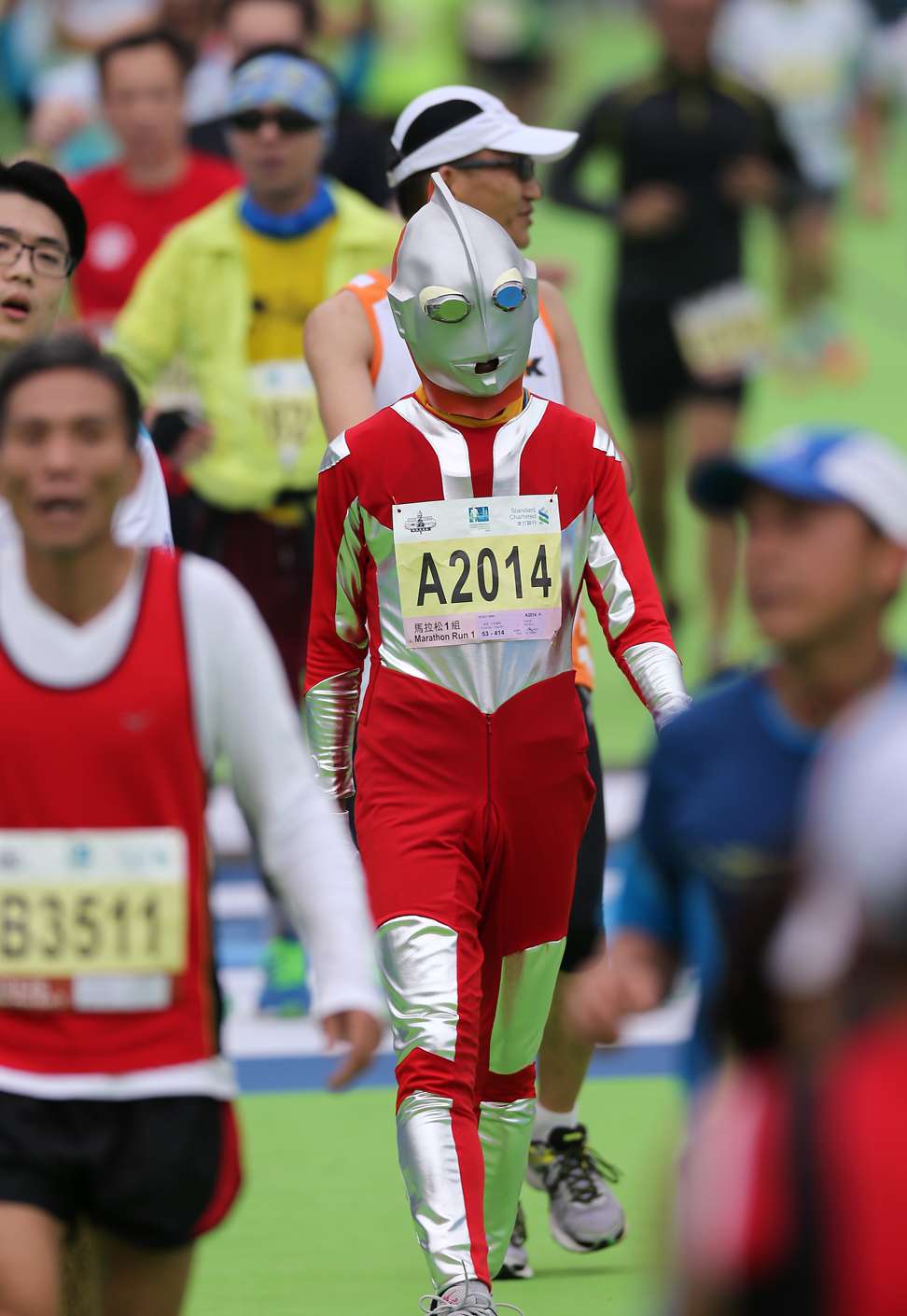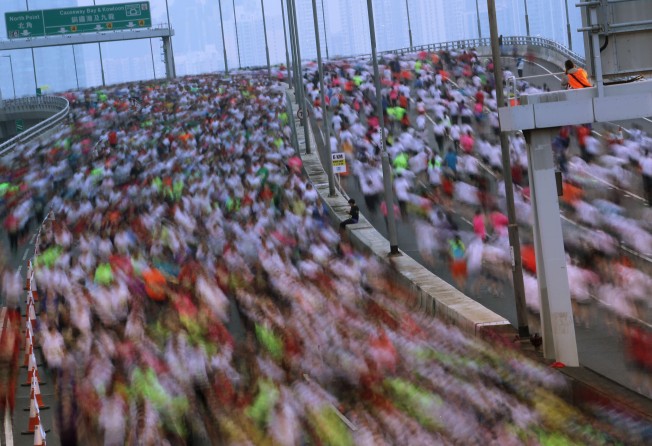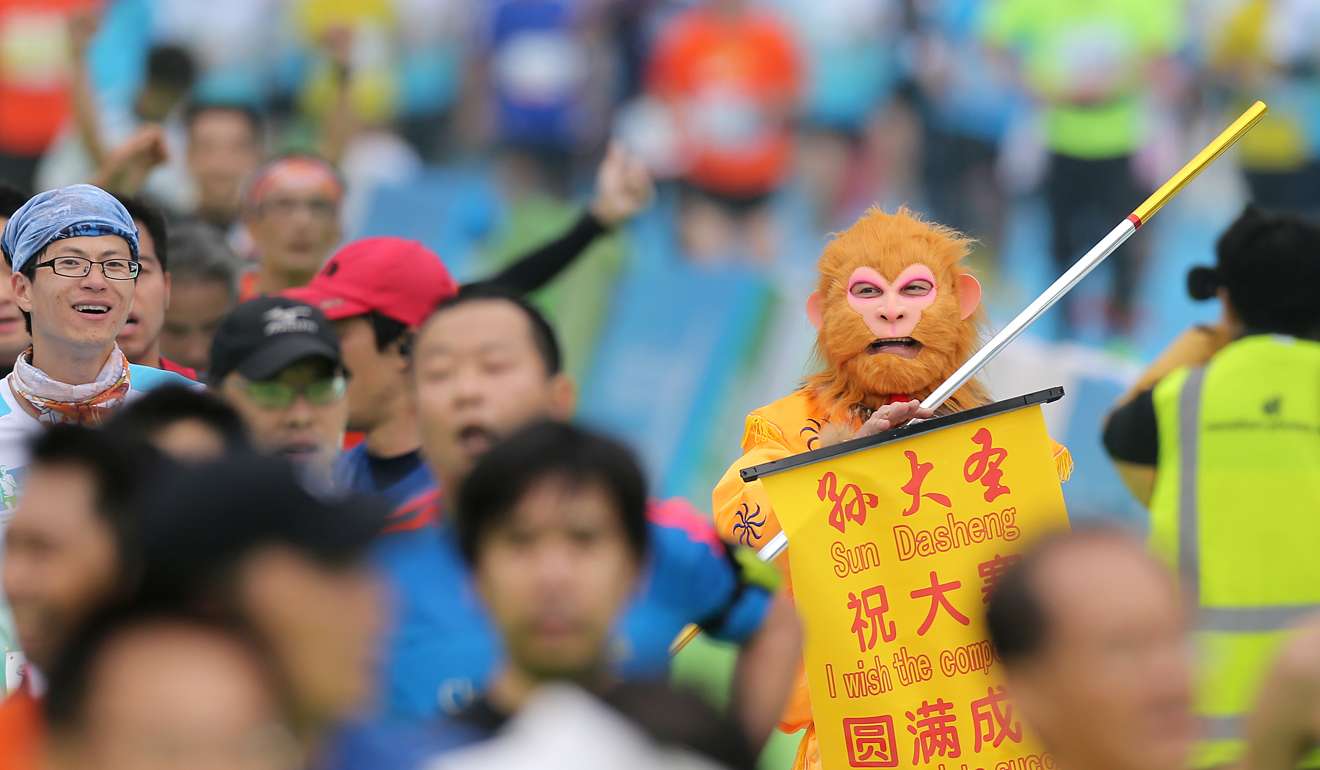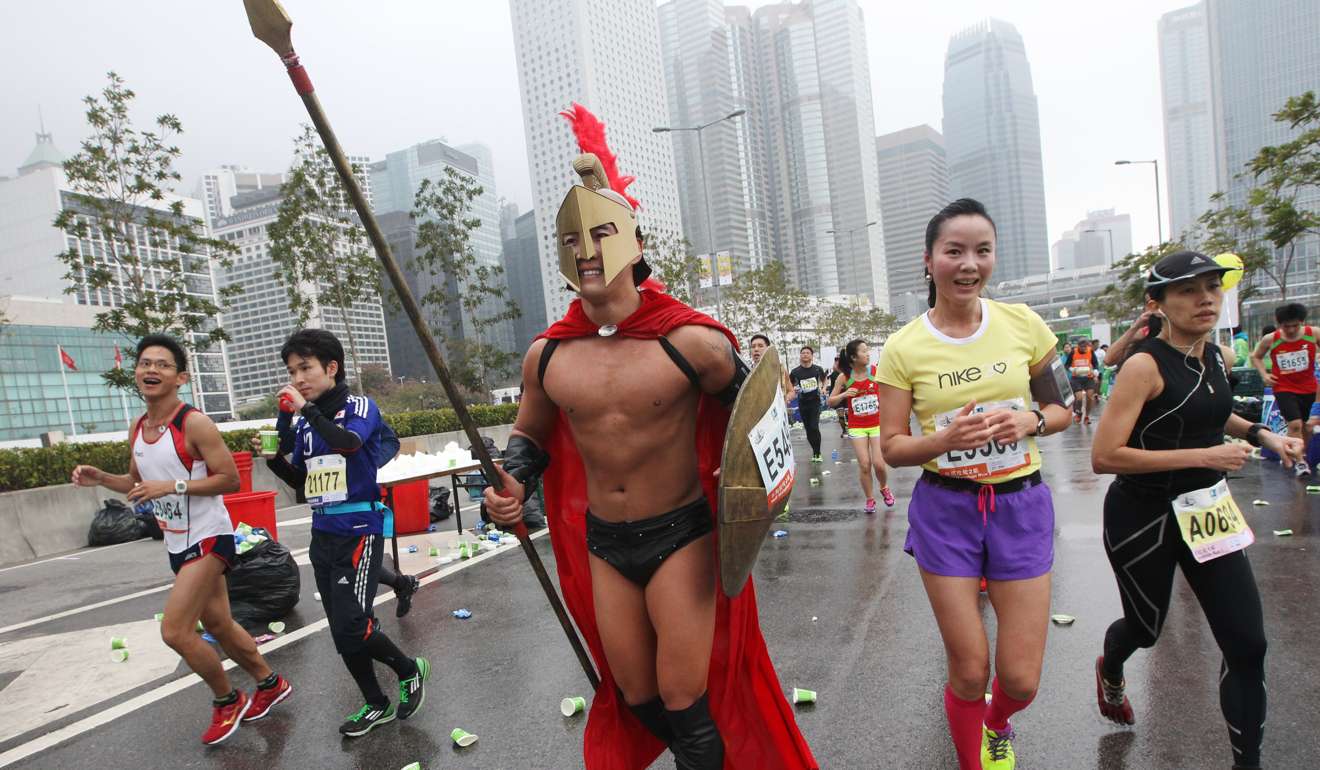
Does Hong Kong Marathon’s surge in popularity since 1997 reflect city’s changing attitude to sport?
Barely 1,000 runners turned up for first race – now it could easily accomodate 100 times that number says Standard Chartered chief Benjamin Hung

Benjamin Hung Pi-cheng was ahead of his time in many ways when he proposed to Ian Wilson, then chief of Standard Chartered, and Mervyn Davies, then corporate banking head and now a member of Britain’s House of Lords, that they should start a marathon in Hong Kong.
That was 1996 and to hear Hung recount the tale in the same office on the 32nd floor of the bank’s HQ in Central, sport was something of a mystery to the people of Hong Kong “with the exception of horse racing and mahjong”.
A lot has changed since those pre-handover days of course. Many would argue not always for the better, but one thing that has surely improved is the city’s sporting culture.
Even if Hung, now the bank’s regional CEO for Asia, might have been overstating the case somewhat when he suggests that the general populace was then interested almost exclusively in making money, the evidence of the marathon’s popularity alone suggests that residents are far more aware of the benefits of sport and an active lifetyle.
From what Hung describes as “a piddly 1,000” entries in its first year, some 74,000 are set to take part on Sunday, with demand for at least 100,000 places.
Though the government often remains slow to see the benefit of sport, as regularly bemoaned in this space, its citizens certainly seem ever more aware.
Hung noted an interesting stat: “Within that 74,000 we’re seeing gradual migration,” he said. “It used to be the most hotly sought-after race was the 10k, now it’s the half-marathon, which means ... the gradual upgrading of the [majority of] runners from a 10k to a half and hopefully one day to a full, because if you think about London, Boston, Tokyo, they are only 42k full marathons.”
China is making massive top-down efforts to get its 1.3 billion people exercising regularly and we’ve wondered before if those policies might influence the Special Administrators of our Region.
The jury remains out – although Beijing’s apparent pick to win next month’s “election”, Carrie Lam Yuet-ngor did turn up for not one but two photo ops at the Asian Junior Squash Championships last weekend, presumably to her complete bemusement, so maybe the message is getting passed down.
Hung hopes so, pointing out that Hong Kong could use something to unite its people.

“We can use more of that [spirit], a lot more of that,” he said. “[In the] UK ... [at] weekends it’s the Premier League, it’s a great way to go watch a game and socialise, in the US you have NFL, NBA, whatever, in Hong Kong you don’t have ... a converging event or initiative or whatever and that’s where I think Hong Kong is known for its commercial DNA, it’s not known for its sports DNA.
“Increasingly I think we’re adding [more events, etc.] ... Hong Kong can do different things to promote and converge that kind of unity because sport is a great thing to promote that.
“I would seriously like to see more of [the kind of healthy living initiatives being pushed on the mainland]. It starts with facilities – running is perhaps the least facility dependent ... but i do think Hong Kong can use more sporting facilities.

“It can find ways to attract more events ... The Rugby Sevens is a very good example that stadium can be filled, [but] other than Sevens it’s hardly filled throughout the year.
“So you need an element of putting software against idle hardware. Those are good things that we can promote but I would encourage, it’s not just spectator sports, we should also promote participatory sports so people can be involved.”
China is also making huge efforts to popularise marathons in its cities, though interestingly Hung suggested the bank would not be interested in sponsoring races there – it currently has 15 in four continents – until the country’s air is cleaner.
“I would explore that,” he says, carefully choosing his words. “I think China needs to work hard at its environmental improvement because running in very, very polluted environment is actually not good.
“Hong Kong has its own pollution challenges as well but I do think ... people are a lot more environmentally conscious these days, but obviously we can certainly do more ... [in] China [the problem] is actually quite acute.”
Hong Kong remains the priority – and Hung points out another remarkable example of the power of sport, after the coldest and wettest race ever in 2016: “It was ridiculously pouring yet I’ve never seen more gratified faces passing that finish line ... it was also a year where I didn’t really receive a lot of complaints.
“You don’t see that side of Hong Kong much – the minute the MTR is delayed people start to complain ... that’s what it’s all about – that’s what sport does you can’t get from other activities.”